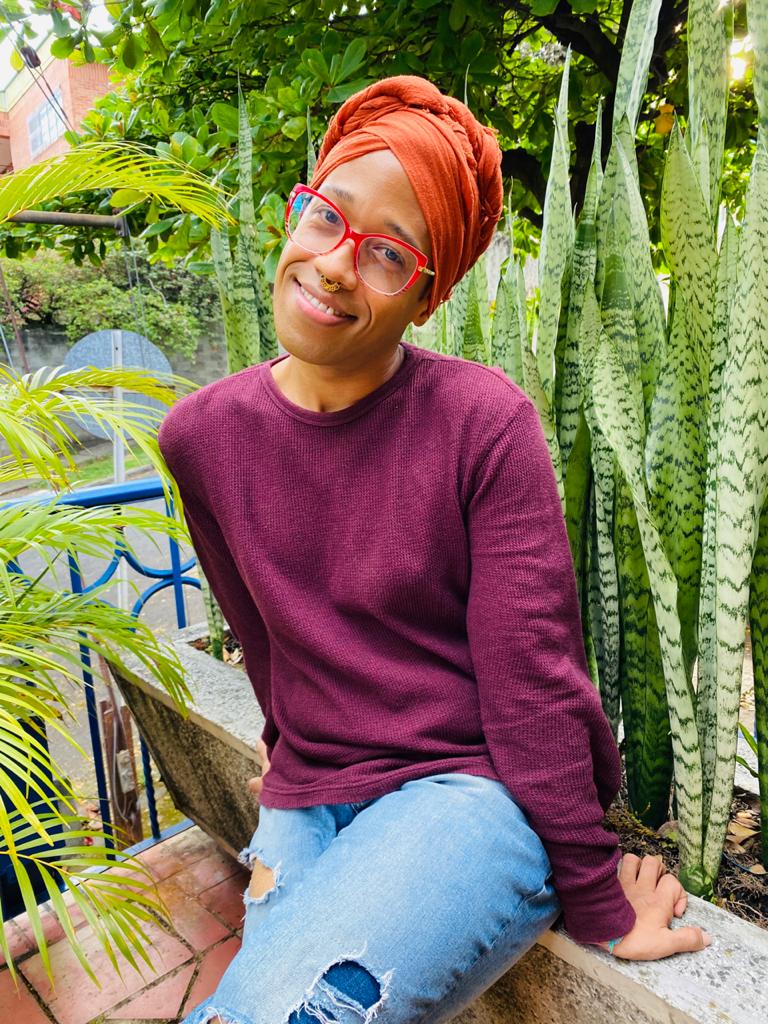This online talk was part of the series “Leave no one behind! – Development cooperation and LGBTI perspectives“
Documentation of the online talk on 10 December 2020
Schlagwort: english
Germany is expected to have its first multi-ministerial LGBTI inclusion plan for development cooperation and foreign policy. The federal government is thereby addressing long-standing calls from civil society, and aligning with countries like Sweden, Canada and the Netherlands. At Forum 4 of the Hirschfeld-Eddy Foundation’s conference on 3 December 2020, representatives of the Federal Ministry for Family Affairs, Senior Citizens, Women and Youth (BMFSFJ), the Federal Ministry for Economic Cooperation and Development (BMZ) and the Foreign Office (AA) discussed the current state of the LGBTI inclusion plan with Sarah Kohrt from the Hirschfeld-Eddy Foundation.
Online talk with Julia Ehrt from ILGA World and Helmut Metzner from the LSVD on 2 June 2020
In the first event of the series “Leave no one behind! Development cooperation and LGBTI perspectives”, Julia Ehrt, director of programs at ILGA World (International Lesbian, Gay, Bisexual, Trans and Intersex Association), gave an overview of the structure and tasks of the Human Rights Council and of ILGA’s activities.
Trans women in particular, but also other members of the LGBTI community, face multiple forms of discrimination and violence on an everyday basis in Columbia. Mauri Balanta Jaramillo, a fellowship holder with the Institut für Auslandsbeziehungen (ifa), reported on this situation in an online talk with Klaus Jetz, the executive director of the Lesbian and Gay Federation in Germany (LSVD), which was attended by around 50 people.
What does development cooperation have to do with lesbians, gay men, bisexuals, trans and intersex people (LGBTI)?
Online talk with Doug Kerr, Dignity Network Canada, Dr. Arn Sauer, researcher, Sarah Kohrt, Hirschfeld-Eddy Foundation, and Helmut Metzner, LSVD (host) on 2 July 2020
Web-talk with Rashima Kwatra, Advocacy Advisor at RFSL Sweden Beijing +25 and LBTQ engagement at the Generation Equality Process
When: Friday, 27 November, 11:30–12:15 CET, new date: Friday, 19 February 2021, 12:00–12:45 CET event canceled and postponed to due to illness
Who: Rashima Kwatra, Advocacy Advisor, RFSL Sweden
Moderators: Sarah Kohrt,Hirschfeld-Eddy-Foundation, Hala Maurice, Human Rights Activist and Researcher
This year marks the twenty-fifth anniversary of the monumental Beijing Declaration and Platform for Action of 1995, which is considered to be the most pioneering agenda for advancing women and girl’s rights. Since then, the agenda has been adopted by 189 governments as a sign of commitment to advocate for gender equality around the globe.
How is civil society advocating at the UN for the rights of LBTQ women? How can successes achieved by e.g. the CEDAW Committee be used to move national policies forward? What experience has been gained in strategic processes and community-based lobbying? ILGA World held a web seminar on this topic together with IWRAW Asia Pacific and RFSL in April 2020.
Beitrag (deutsch)
Einladung (deutsch)
What does the term “sexual and reproductive health and rights” – or SRHR for short – actually mean? What role do its topics play in international discussions of human rights? Where are these issues debated and negotiated, and who are the main actors? Katrin Erlingsen from the DSW — Deutsche Stiftung Weltbevölkerung explained the concept of SRHR in a web seminar from the Hirschfeld-Eddy Foundation.
This article covers a side event organised by GIN-SSOGIE at the UN Human Rights Council on “Using inclusive narratives around faith and tradition to support human rights advocacy on the continent”.
Key topics at a high-level online event held by the UN LGBTI Core Group during the 75th session of the United Nations General Assembly in late September 2020 were intersectionality, protecting the rights of LGBTI people, and lessons learned from the pandemic.
“While all LGBTI persons experience discrimination and exclusion, we do not experience discrimination and violence in the same way,” said Jessica Stern at the opening of the high-level event held by the UN LGBTI Core Group during the 75th session of the United Nations General Assembly in late September 2020. The UN LGBTI Core Group is an informal group of UN member states that was founded in 2008 with Germany involved from the start (see boxed info text).


